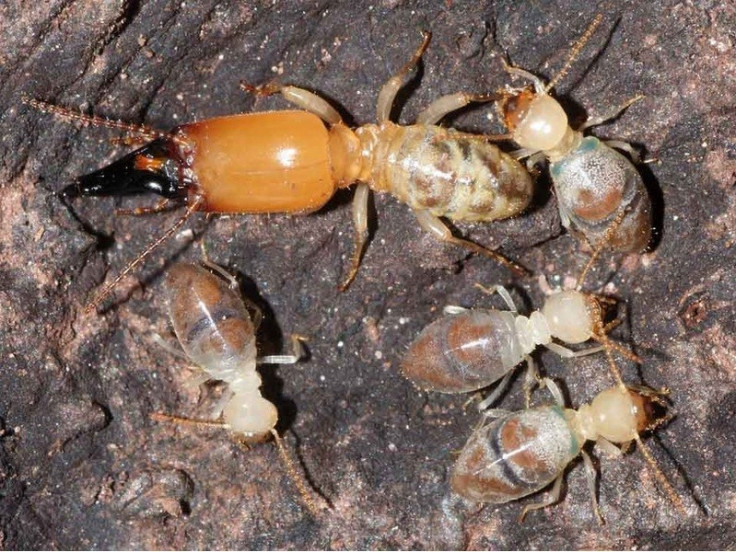Scientists Discover Breed of Exploding Termites [VIDEO]

A team of scientists has discovered a new species of termite that defends itself by exploding when a nest is invaded.
They have found that the termites, known as Neocapritermes taracua, have a blue spot on their backs which contains explosive crystals that are used to carry out suicide attacks. The explosive termites have shorter, worn-down mandibles compared with others from the same species, indicating that they are older, according to the findings published in Science Journal.
The new termites were discovered during a scientific expedition to the forests of French Guiana. The scientists noticed blue spots on the back of the insects in one nest. When a scientist picked up one of the termites with a pair of tongs, it exploded.
"What's new and interesting here is that this is found to be an aspect of colony-related age organisation," said James Traniello, a biologist at Boston University.
Scientists started observing the behaviour of the termites after their first sighting. They found that the blue spots explode during hostile encounters with other species. The explosion will kill or paralyse a rival termite.
To understand exactly how the explosive mechanism works, scientists conducted lab experiments on the termites, removed the blue pouch to examine its contents. They found that blue crystals contain a protein that is unusually rich in copper.
Scientists found that the termites explode when the copper-rich protein interacts with the salivary gland.
Previously, researchers had discovered several species of termites that can spew out sticky, smelly fluids on to their opponents.
"Since N taracua have soldiers, it's especially surprising to see workers exploding," Robert Hanus, biochemist at the Academy of Sciences of the Czech Republic, told Science.
"We're still not 100 percent sure what the role of the blue protein is. That's definitely something which we want to perform further research on."
This video shows how the termites explode:
Video Credit: Nature Journal
© Copyright IBTimes 2025. All rights reserved.





















